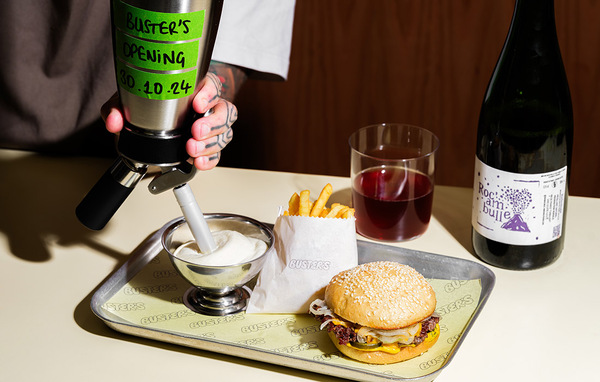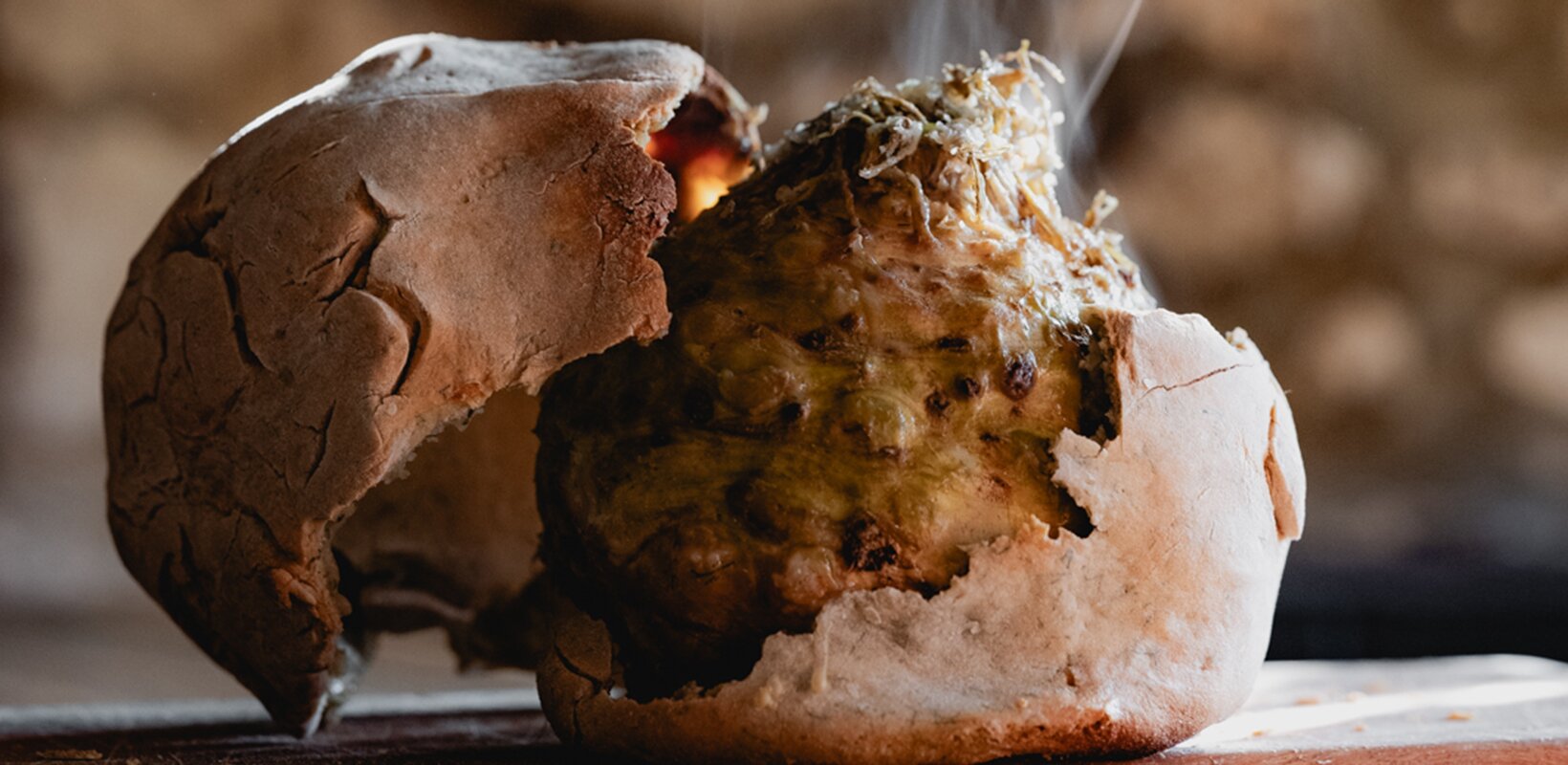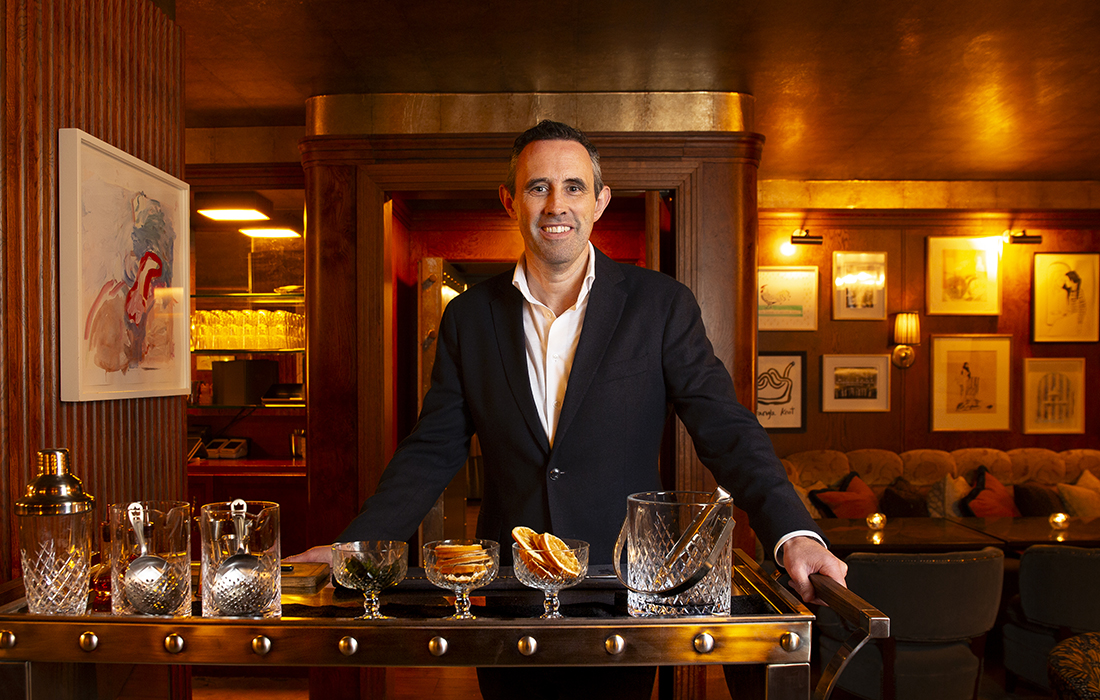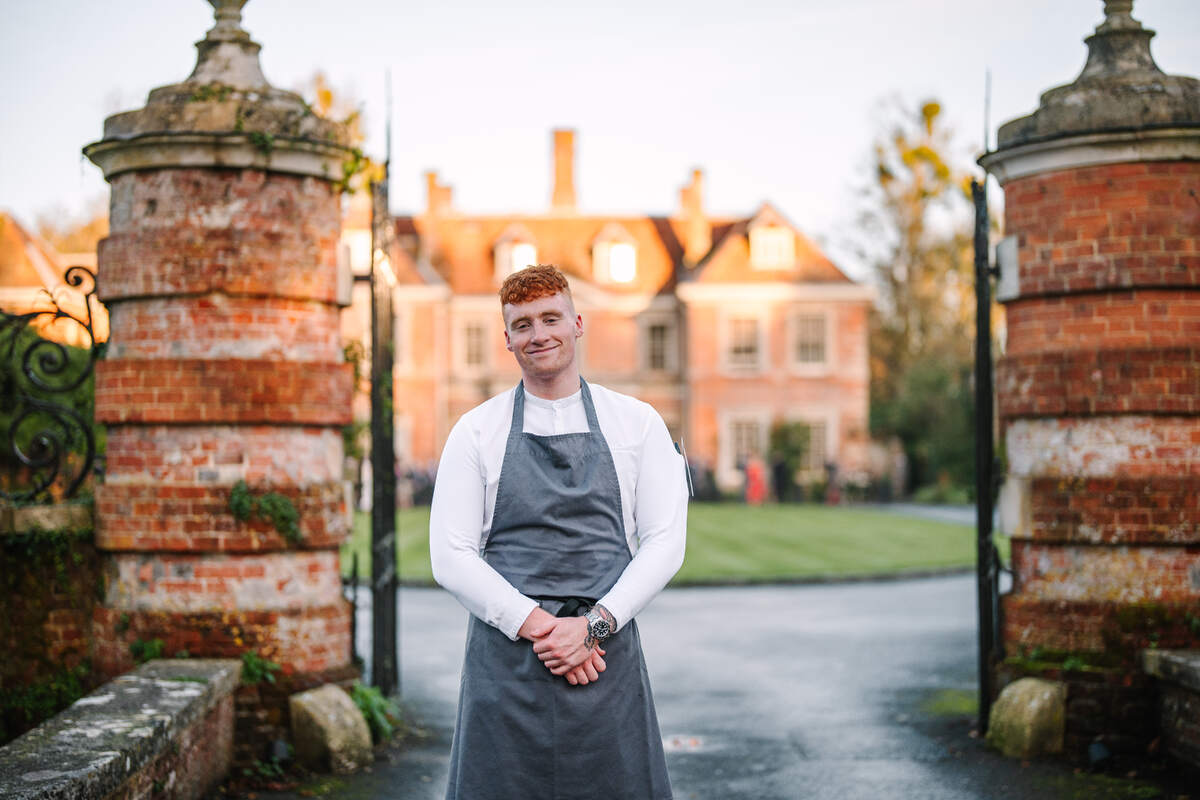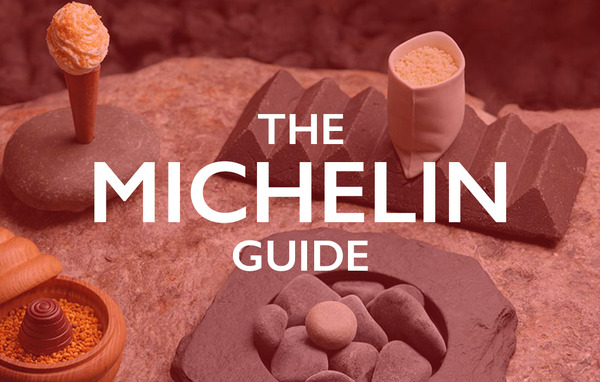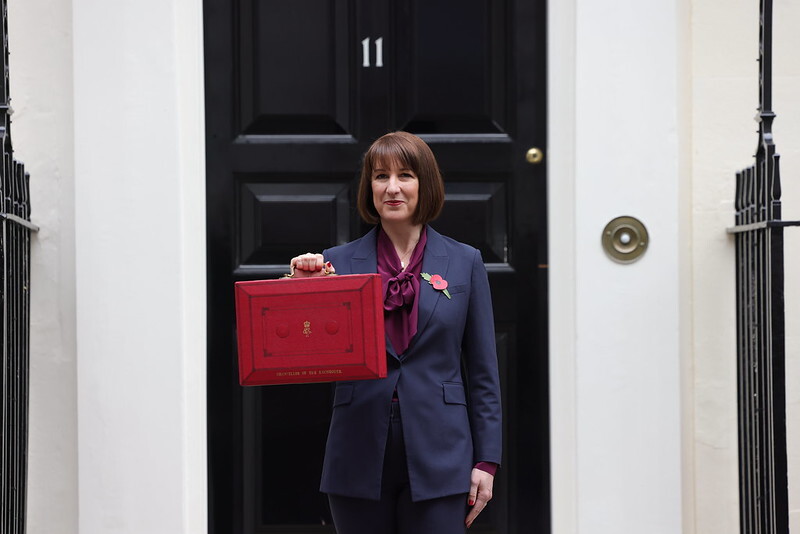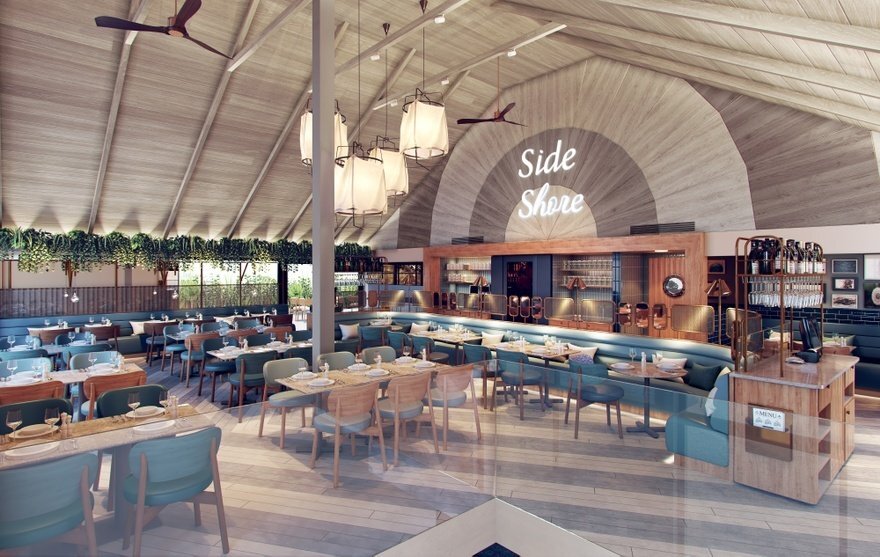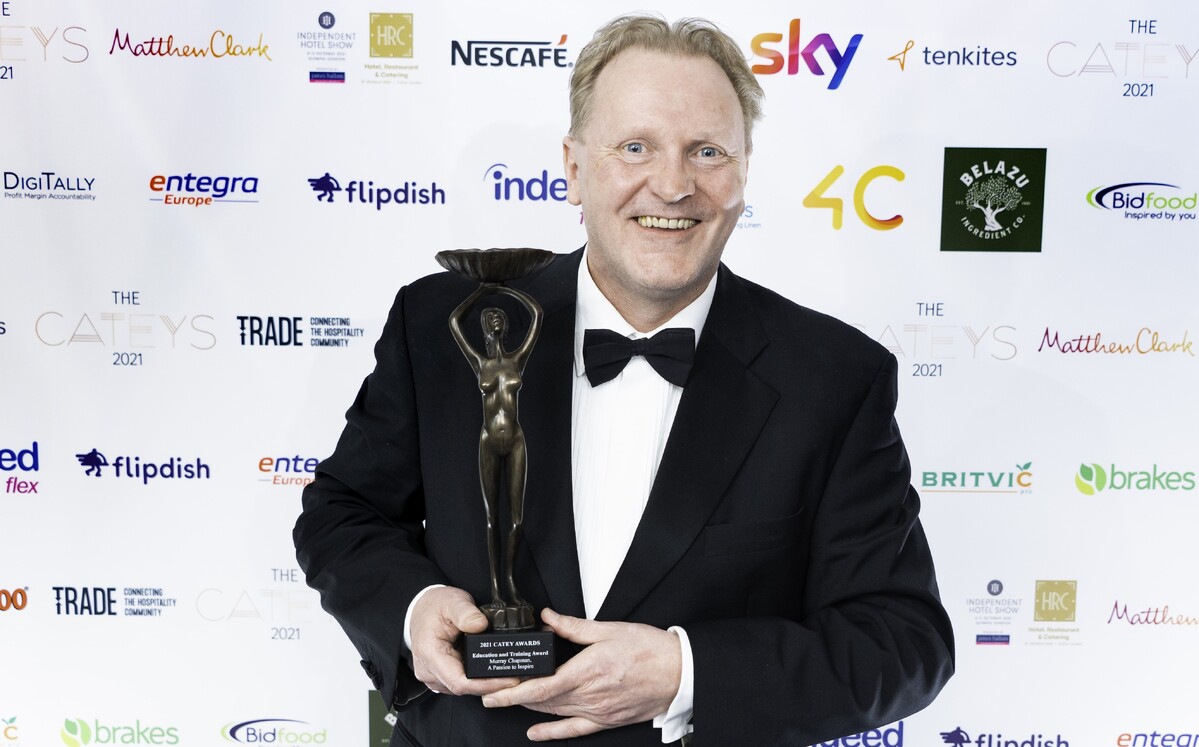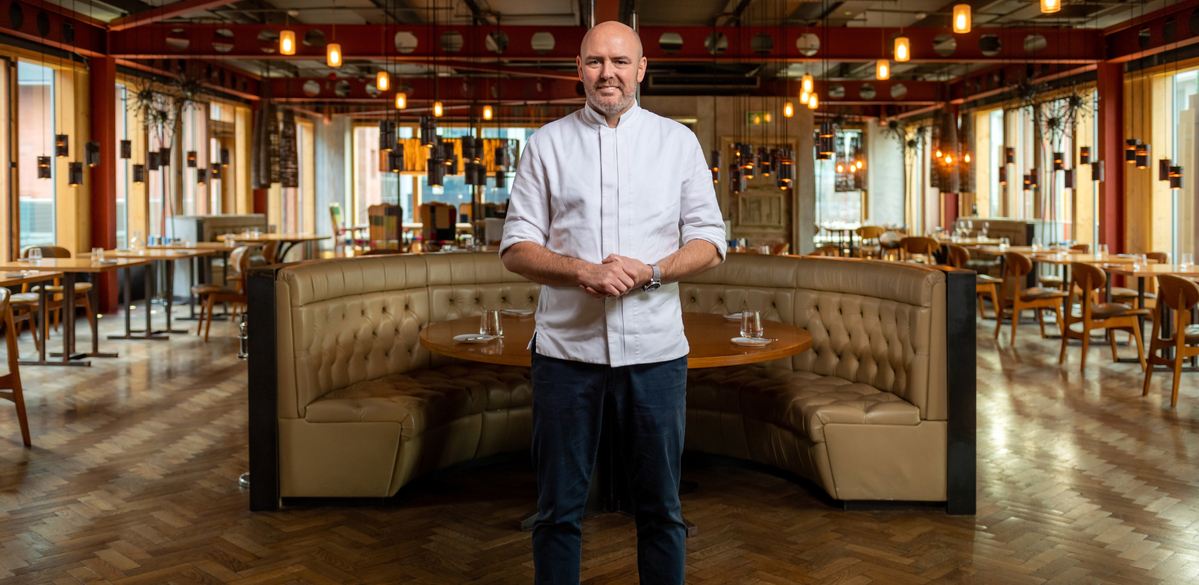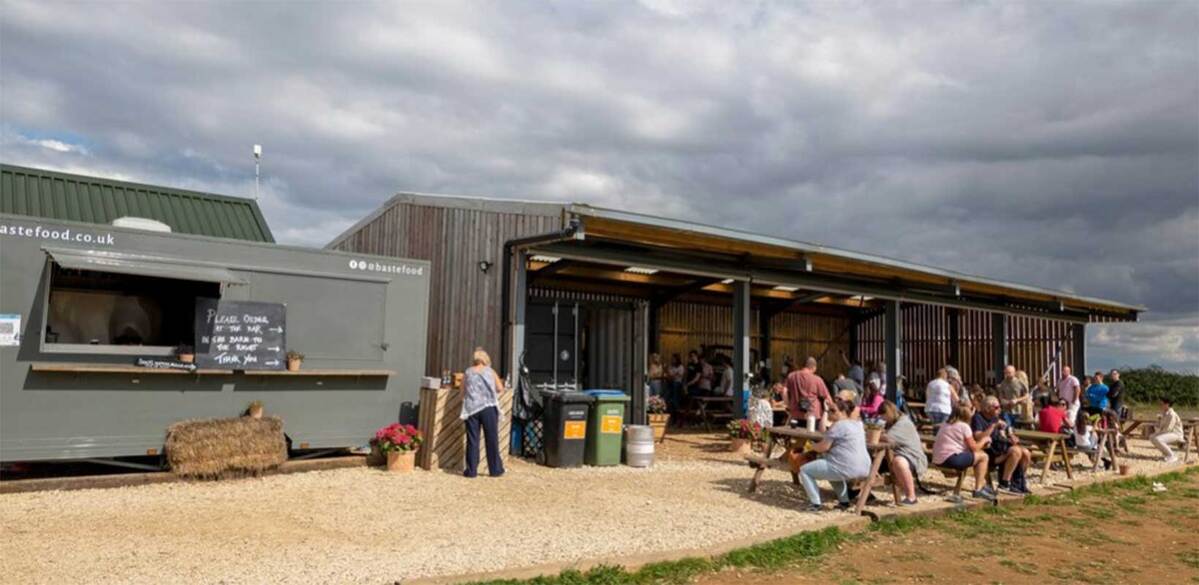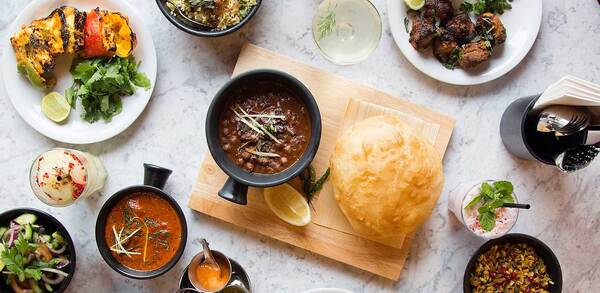The Bull: 'It’s what every chef dreams of'
A cosy pub and super-fresh produce from a farm 10 minutes up the road seduced chef George Williams into his dream job. Caroline Baldwin reports
The great British pub is a comfort blanket in difficult times, always there to welcome guests with open arms, preferably with a warm seat next to a roaring fire in the depths of winter.
And there has never been a better time for pub lovers. There’s the likes of the Devonshire and the Parakeet making waves in London, while Manchester’s Edinburgh Castle and Suffolk’s the Greyhound are doing a grand job of pouring a perfect pint in a thoughtfully designed setting. And what these pubs have in common is, of course, the food. The same care has been taken at the Bull in Charlbury, which opened over the summer. Owners James Gummer and Phil Winser refurbished the country inn, which now offers a 55-seat dining room, further covers in the bar area, as well as a huge outdoor space with fire pits and outdoor cooking in the summer, as well as 10 beautiful rooms.

Gummer and Winser, who grew up near Charlbury in the Cotswolds, know how run a decent pub – being the brains behind the much-loved Pelican, along with Richard Squire, which opened in Notting Hill in 2022.
A spontaneous visit to the Bull ahead of its opening saw head chef George Williams clinch his dream role. The chef had been at the esteemed River Café in West London and already had the role of sous chef lined up for the summer opening of the Bull. But after popping in on his way to the Glastonbury Festival, he was informed that the head chef hadn’t shown up. After a few hours spent in a sweltering tent penning menu ideas, which resulted in a successful opening party, Gummer and Winser offered him this dream role, reporting to executive chef Ronnie Bonetti.

Williams says he is now cooking with the best produce he’s ever worked with, thanks to the Bull’s farming programme, which sees grower Thomas Jones look after a one-acre plot of land 10 minutes down the road at Bruern Farms. Jones has an “almost scientific obsession” with soil, according to Williams, and has passionately converted what was a wasteland of weeds into a bounty of produce.
“We had the most amazing tomatoes and now we get a delivery three times a week – it’s what every chef dreams of,” says Williams.
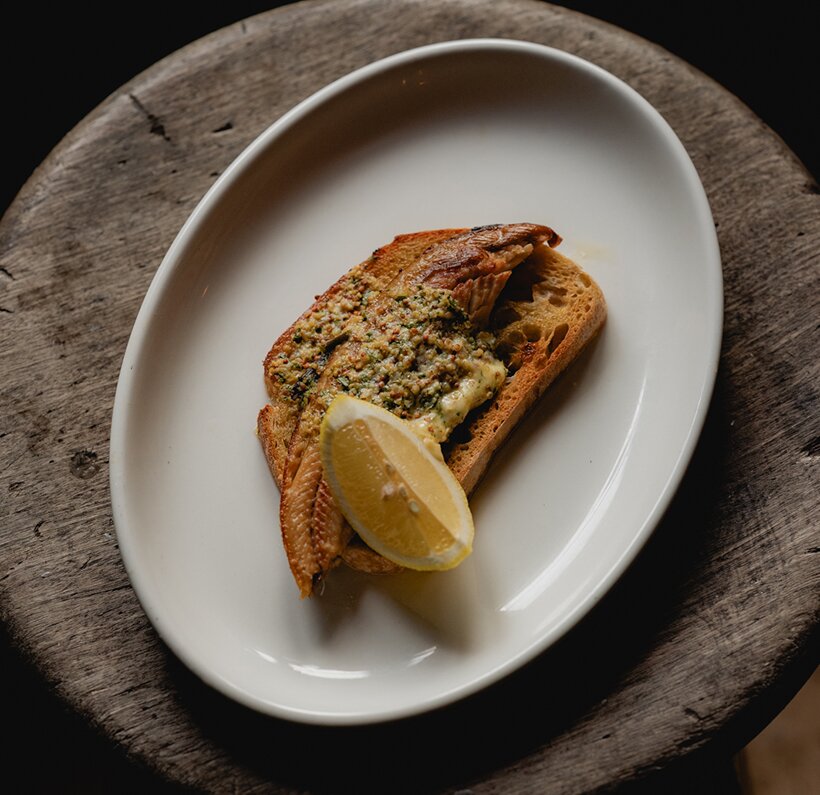
The glut of tomatoes last summer was so large that the 10-strong chef team at the Bull were pickling tomatoes and making batches of sauce to freeze to accompany dishes such as muntjac meatballs and seabass in the colder months, while simple tomato salads were big hits to accompany his summer fire cooking.
“This represents exactly what we’re trying to do – nothing super-fancy with the food, but with just a couple of little touches to elevate it and let the ingredients shine,” he says.
As winter kicked in, Williams began to get excited about bitter leaves such as radicchio and chicory, which he uses as a side dish. “I want to find ways to give guests a heavy partridge, bacon and cream dish without making them feel so full they pass out by the fire,” he says. “One way we serve the leaves is to put them in the very hot Josper charcoal oven and shut the door for five to 10 seconds until they just start to crisp and wilt. I then take them out and immediately hit them with vinegar. It’s that mix of the char and the vinegar which goes perfectly with game.”

Another way to showcase the leaves is in a salad, with a tarragon dressing and a splash of cream to cut through the bitterness. He adds Kentish cobnuts and shavings of Fosse Way Fleece sheep cheese sent to him by one of his suppliers. “That creamy, sharp dressing with the cheese and crunch of the nuts and the bitter leaves on the side of a pie or steak – it just keeps me going back for more,” he says. The farming project gives Williams the confidence to focus on British ingredients, aiming to only import ingredients like chocolate or lemons. And while he draws inspiration from all types of cuisines, he chooses to showcase his suppliers by “Britishising” his dishes.
Take leeks as an example. “I’m obsessed with pasta, but we don’t do pasta, as we wouldn’t do that when we’re trying to put a light on British food,” he says. Instead, the pre-cooked leeks act as the pasta, placed into a pan with starchy water from boiled potatoes, coarsely ground pepper and cubed boiled potatoes. He then finely grates Lincolnshire Poacher cheese, which melts to create a heavy, cheesy, starchy dish similar to a cacio e pepe.
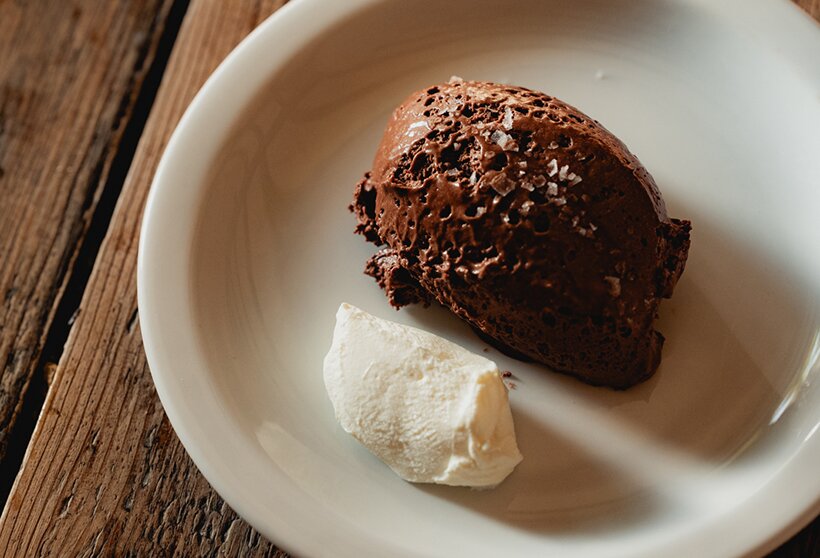
Breaded muntjac appears on the menu, as his Britishisation of a schnitzel, which he serves with a ‘sauerkraut’ of raw and pickled kolrabi with garlic oil and chives. Alongside this is either a gooseberry or plum compote, depending on the season, which acts as the lingonberry jam. But his favourite combination from the menu is oysters alongside soda bread and seaweed, served with a plate of cured trout and pickled green tomatoes.
“You have an oyster, then bite into the bread and then have a bit of trout, and that, to me, is the British seaside. It’s like a cold, brisk seaside walk, where the warm, pillowy bread is the coat you wear on the beach on a winter’s day while you have that breeze in your face – it’s just something I absolutely love.”
From the menu
Raw beef, mustard £14
Cuttlefish, celery £10
Trout, green tomato £11
Muntjac meatballs £10
Beetroot, curd £9
Salt-baked celeriac, green sauce £8
Vegetable plate £16
Leeks, Lincolnshire Poacher £4.50
Sea bass, mussels £28
Plaice, brown butter £20
Rump, Black cabbage £26
Whole partridge, bacon, cabbage £24
Ray wing, samphire £21
Rib of beef (to share) £85
**Sheep Street, Charlbury, Oxfordshire OX7 3RR


